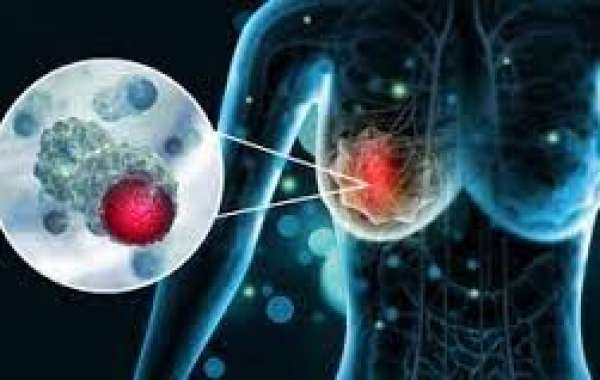The diagnosis of breast cancer alters everything for a person in every way. After such a diagnosis, couples are faced with various problems, among which the questions of sex and intimacy are relatively serious. This delicate slice of life now comes into view more often as individuals and couples struggle with when, how, or even if to go about sex again while going through breast cancer treatment and after. Each person has a different answer to these questions. In the end, such intensely personal issues as sex and intimacy reflect the amazing diversity of human beings and their unique paths in life.
In our exploration of "Sex and Intimacy After Breast Cancer Treatment," we hope to obtain some understanding of the intricacies and sensitivity of such difficult issues in human life. Resumption of sexual activity and constraints of breast cancer treatment, the issues that must be faced by men as well as women, and the multitudinous ways in which couples can maintain or strengthen intimacy in the case of physical changes.
Ultimately, the purpose of this discussion is to lend people as much support as possible in their post-breast cancer intimate lives. At the best cancer hospital in Kolkata, we aim to instill hope, compassion, and a sense of not being alone among people who can manage their trials with endurance and learn from each other's experiences.
Timing and Individual Choices
One of the most sensitive and particular aspects of a bone cancer opinion is the decision of when or if to renew sexual exertion. It's a choice that varies greatly from person to person, told by numerous factors that are as unique as the individualities facing this complex challenge.
No Universally Right Time:
First and foremost, it's essential to understand that there's no widely" right" or "wrong" time to renew sexual exertion after a breast cancer opinion. The timeline for this deeply particular decision depends on multitudinous factors, including physical recovery, emotional readiness, and individual preferences.
Respecting Individual Comfort Levels:
Each person's journey through breast cancer is unique, as are their feelings and choices regarding intimacy. Some individuals may choose to continue having sex during their treatment, finding that it brings them comfort and a sense of normalcy during a challenging time. Others may prefer to put intimacy on hold temporarily, focusing on their physical and emotional healing.
Physical and Emotional Factors:
This is an important decision where physical and emotional factors play a major role. The physical stress of treatment like surgery, chemotherapy, or radiation can influence your bodily strength, relaxation, and personal comfort. There could be a great difference in the emotional and psychological impact of breast cancer diagnosis and treatment for an individual, affecting their wish to have intimacy and closeness.
The authors discussed high levels of fear, which were evident in responses linking smoking with lung cancer, primarily as a result of misconceptions about the causes of depression, discomfort from oncology visits, and anxiety over continuing to fight this illness.
Communication and Partner Support:
Thus, it is crucial to establish effective communication with a partner. They can develop understanding and provide emotional support by sharing thoughts and concerns regarding their emotions or their desires. Partners can be with you on this journey in a crucial way, as they could give you confidence, patience, and an understanding atmosphere that allows you to make intimate decisions within an atmosphere of self-respect.
Challenges in the Wake of Treatment
Treatment of breast cancer, specifically uterus therapy with hormones, may cause many side effects that can influence your sexual life. Common go Charles is loss of sexual desire and changes in vaginal For instance, hormone therapy can cause one to lose interest in sex because of reduced sexual desire, while vaginal dryness and irritation may invoke pain during intimate moments.
Alternative Paths to Intimacy
It is always important to remember that intimacy doesn’t only refer to sexual activity. While vaginal dryness or discomfort may be present, various dimensions of emotional and physical closeness could still be explored and enjoyed by partners. Open communication with your partner and an openness to experimenting at various levels will leave a couple feeling intimate if the bond between them becomes stronger.
Post-Treatment Quality of Life
Fortuitously, a lot of sufferers describe receiving good-quality post-chemical affection breast cancer treatment. It must also be taken into account that a number of individuals may suffer from long-term side effects or appear to face other challenges in four months up and down after treatment. Regular contact with healthcare providers from the best cancer hospital in Bangalore can be used to deal with problems that arise and rest assured that people are properly supported and cared about.
Conclusion
During the difficult journey of breast cancer treatment, one must show great tenacity in the face of life, simultaneously carrying hope and trying to adapt to it. After pulling themselves out from under the label of disease and all attendant treatments, people usually have problems or uncertainties of many sorts concerning their intimate lives. There is no single consensus on how to find one's way back to love after breast cancer, any more than there is one "right" way.
It is important to know that once the treatment is over, sexual intimacy can take many forms, with emotional and physical connections of all kinds. Open communication, trust, and the willingness to explore different forms of closeness are what will show the true way. They will make possible a fulfilling, post-treatment, intimate life.
Breast cancer may bring difficulties, but at the same time, it is capable of forging deeper connections, developing greater resilience, and reclaiming those precious moments in life. With the support of healthcare professionals, as well as partners and the wider community of breast cancer survivors, people may find their way through this intimate journey with grace and determination. The bottom line is clear: after-treatment intimacy not only exists, but it also provides a source of strength and joy against suffering.




